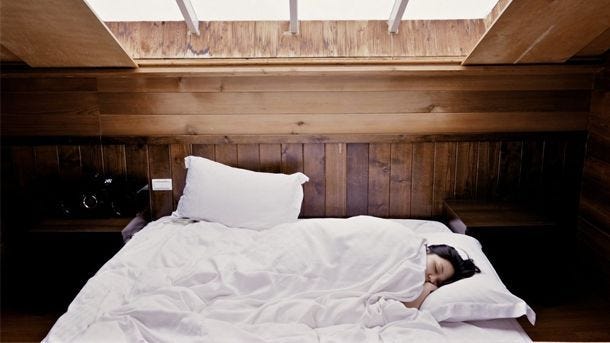Sleep Deprivation, Sleep Apnea, and Your Health
Sleep deprivation is officially a national health crisis according to the Centers of Disease Control and Prevention (CDC).1 In 2016, it was reported that one-third of adults fail to get the recommended seven hours of sleep.2 Yet, most Americans view their lack of sleep as a harmless result of stress or their busy lifestyle. In reality, many health problems we experience during our waking life may be direct results of restless nights.
Sleep deprivation, whether it be related to insomnia or chronic conditions, such as narcolepsy or restless leg syndrome, can cause numerous health-related issues. Sleep loss doesn’t just leave you tired during the day. Frequent lack of quality sleep can also contribute to heart disease, stroke, diabetes, depression, and the early onset of dementia.
Sleep Apnea Affects Millions of Americans.
Sleep apnea is the most common sleep disorder, affecting 22 million Americans. Of those, 80% of the cases of moderate to severe obstructive sleep apnea are undiagnosed.3 So, what is sleep apnea? It is a disorder where a person periodically stops breathing throughout the night due to a collapsed airway.
What Are Symptoms for Sleep Apnea?
There are many symptoms of sleep apnea. Heavy snoring is one of the most noticeable symptoms as it often disturbs both the individual and any bed partners. Others may also notice that you choke, gasp, or stop breathing in the middle of the night. Difficulty concentrating, feelings of depression, frequent memory loss, or problems staying awake during the day may all be signs that sleep apnea is impacting your health.
How Do You Get Tested for Sleep Apnea?
In order to diagnose sleep apnea, you must complete an overnight sleep test. There are two options: either a traditional, in-lab sleep study at a nearby clinic or a home sleep test in the comfort of your own bed. In both cases, a monitor tracks sleep behavior and bodily functions, including blood oxygen levels, brain activity, and breathing patterns. These are key indicators that allow physicians to identify what your body is experiencing during moments of disruptive sleep.
Because sleep apnea is caused by an obstruction of the airways during sleep, reducing oxygen to the brain triggers disruptive sleep episodes. Sleep apnea may be the result of a small upper airway or an enlarged tongue. Obesity, smoking, and alcohol are additional triggers.
The treatment for your sleep apnea may vary. That’s why it’s essential to not only diagnose sleep apnea, but also determine its root cause.
How Do You Treat Sleep Apnea?
Your doctor may recommend lifestyle changes, such as quitting smoking, abstaining from drinking alcohol, or losing weight. In some severe cases, invasive treatments such as dental appliances, surgery, and nerve stimulation may be considered.
More likely, doctors will recommend the most common and least invasive treatment, continuous positive airway pressure (CPAP) therapy. Through a CPAP machine, pressured air is delivered throughout the night to keep the airways open and reduce episodes of apnea. Patients wake up refreshed and well-rested.
Our Recommendations
CPAP technology is always improving and with new innovations come improved comfort and ease of use. Our top-selling autoPAP machines include the Philips Respironics DreamStation Auto and the ResMed AirSense 10 AutoSet and ResMed AirSense 10 Auto for Her. These machines measure each breath to automatically deliver the minimal amount of the pressure that is needed to keep your airways open. If pressure is not needed, the device lowers the range.
What's New in CPAP Therapy?
The biggest trend in CPAP therapy is the arrival of travel machines. These lightweight, compact devices fit in the palm of your hand and weigh less than 2 lbs. Imagine all that extra room in your bag! With add-ons that include heated humidification and integrated batteries, the Philips Respironics DreamStation Go Auto and the ResMed AirMini deliver all the bells and whistles as their at-home counterparts.
As always, the staff at The CPAP Shop is here for you. We’re happy to answer all your questions and help guide you in picking the machine that best fits your needs. Give us a call at 866.414.9700!
References:
- CDC declares sleep deprivation a health crisis. WCTV. 2019 Jan 3.
- CDC. Sleep and sleep disorders. https://www.cdc.gov/sleep/index.html. 2017 May 2.
- American Sleep Apnea Association. Sleep apnea information for clinicians. https://www.sleepapnea.org/learn/sleep-apnea-information-clinicians/.




